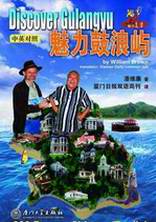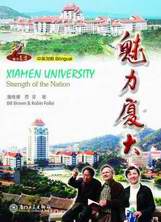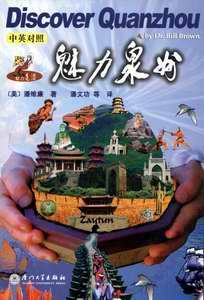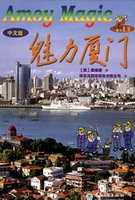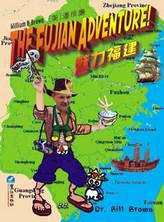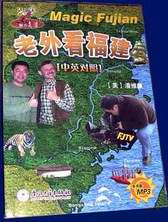![]() Click
to
Access
Click
to
Access
AMOY MAGIC SITE from
OUTSIDE China
![]() Click
to Access Amoy
Magic Site from
Click
to Access Amoy
Magic Site from
INSIDE
China ![]()
TRAVEL
LINKS
![]() Xiamen
Xiamen
![]() Gulangyu
Gulangyu
![]() Jimei
Jimei
![]() Tong'an
Tong'an
![]() Jinmen
Jinmen
![]() Zhangzhou
Zhangzhou
![]() Quanzhou
Quanzhou
![]() Wuyi
Wuyi
![]() #1Fujian
Sites!
#1Fujian
Sites!
![]() Fujian
Foto Album
Fujian
Foto Album
![]() Books
on Fujian
Books
on Fujian
![]() Readers'Letters
Readers'Letters
![]() Ningde
Ningde
![]() Zhouning
Zhouning
![]() Longyan
Longyan
![]() Sanming
Sanming
![]() Putian
Putian
![]() Bridges
Bridges
![]() Travel
Info,
Travel
Info,
![]() Hakka
Roundhouses
Hakka
Roundhouses
![]() Travel
Agents
Travel
Agents
MISC. LINKS
![]() Amoy
People!
Amoy
People! ![]()
![]() Darwin
Driving
Darwin
Driving ![]()
![]() Amoy
Tigers
Amoy
Tigers
![]() Chinese
Inventions
Chinese
Inventions
![]() Tibet
in 80 Days
Tibet
in 80 Days![]()
![]() Amoy
Vampires!
Amoy
Vampires!
![]() Dethroned!
Dethroned!
![]()
![]() Misc.Writings
Misc.Writings
![]() Latest
News
Latest
News
![]() Lord
of Opium
Lord
of Opium
![]() Back
to Main Page
Back
to Main Page
Copyright 2001-7 by Sue Brown & Dr.
Bill ![]() Order
Books
Order
Books
Note:
Please click thumbnails
for larger photos!!
![]() Amoy
Hill's Photos
Amoy
Hill's Photos![]()
![]() AmoyMission-1893
AmoyMission-1893
NARRATIVE OF EXPLORATORY VISIT TO CONSULAR CITIES OF CHINA
(1844, 1845, 1846)
BY
REV. GEORGE SMITH, 1857 Scanned
by Dr. Bill Brown
![]() Chap
25 Departure to Amoy
Chap
25 Departure to Amoy ![]() Chap
26 Daily Occurrences at Amoy
Chap
26 Daily Occurrences at Amoy
![]() Chap
27 New Year Festivities
Chap
27 New Year Festivities ![]() Chap
28 Visit Amoy High Mandarins
Chap
28 Visit Amoy High Mandarins
![]() Chap
29 Prevalance of Opium Smoking
Chap
29 Prevalance of Opium Smoking ![]() Chap
30 Female Infanticide
Chap
30 Female Infanticide
![]() Chap
31 Daily Incidents at Amoy Cont'd
Chap
31 Daily Incidents at Amoy Cont'd ![]() Chap
32 Mandarins Entertain Missionaries
Chap
32 Mandarins Entertain Missionaries
![]() Chap
33 General Description of Amoy
Chap
33 General Description of Amoy ![]() Chap
34 Depart Amoy for Canton; Opium Problem
Chap
34 Depart Amoy for Canton; Opium Problem
CHAPTER XXXIV DEPARTURE FROM AMOY, & THIRD
VISIT TO CANTON.
Incidents of last Sabbath at Amoy-Farewell Attentions of Chinese Friends
-Voyage to Hong Hong-Visit to Canton-Comparative Review of missionary
Openings at Canton and in the Northern Ports of China-Recent Riots at
Canton-Difficulties of Ke-Ying-Present Dangers of China-An Apology for
the Chinese Government in their Exclusion of Opium-The Duty of the Christian
Legislators of Britain.
ON Feb. 22d,
being the last Sabbath of my residence at Amoy, I attended the various
missionary services, and was requested, at the close of the sermon at
the American Mission chapel, to address a few words to the people in the
court dialect. I informed them of the circumstances which caused me to
return to my native land, and of the probable arrival of other missionaries
in my place, concluding with the inquiry, whether the prospect of new
laborers coming to re-enforce the missionary body afforded them pleasure.
One of the teachers interpreted my parting words, with long comments,
in the local dialect, to the people standing around, fifty of whom were
soon collected about the pulpit, where they remained for another half
hour, offering their farewell greetings and shaking hands. As they did
not seem disposed to separate, the missionary who had been preaching proceeded
to hold a dialogue with some of their number. Some of them hazarded illustrations
of their own on the subjects which they had heard in the sermon. On being
asked whether they would welcome among them any additional missionaries,
and would rejoice at their arrival, they replied, "Yes." On
being again asked why they wished missionaries to come among them, some
said, "Because you love us;" others said, "Because you
talk so kindly with us.¡± The missionary then reminded them of the consequences
of slighting the message of the Gospel, and of the possibility of all
the missionaries being removed from among them, as a punishment of their
spiritual indifference. Another shaking of hands took place as I left
the building, some of my more intimate acquaintances asking at what hour
on the next morning I expected to take my departure, and expressing their
wish to do me the honor of accompanying me a little distance on my way.
Accordingly, early the next morning six teachers and neighbors came to
the house, waiting for my departure. They accompanied me to the loading
place, where, on getting into my boat, I bade them adieu. They would,
however, insist on hiring a boat, and rowing for two miles, a little astern
of my boat, to the outer harbor, till we arrived alongside the man-of-war
in which I was to embark. Here, as I ascended the gangway, my Chinese
friends exchanged with me a last farewell by waving their hands, and were
soon on their way back through the harbor to Amoy. Shortly after we were
proceeding on the voyage to Hong Kong, and in a few hours were out of
sight of localities, the remembrance of which will ever be endeared to
my mind by the kind friendship of all the missionary brethren, and the
incidents of my stay of more than six weeks.
During the first two days of our voyage we experienced light head winds,
and on the third day we had a strong contrary breeze from the southeast.
On the fourth day there sprung up a fresh breeze from the northeast, before
which we sailed at a rapid rate. In the afternoon we were already off
Pedra Branca, and finding that we were unable to reach the entrance among
the islands before sunset, we were forced to heave to for the night, as
there was no moon, the wind increasing to a gale. At daybreak on Friday,
Feb. 27th, we found that we had drifted a few miles to the leeward of
the island of Hong Kong. After an hour's beating to windward, we passed
through the Limoon passage on the east, and soon came to anchor in Victoria
harbor.
VISIT TO CANTON.
During the course of the following month of March I paid a visit to Canton,
for the purpose of ascertaining the state of popular feeling, and the
progress of the missionary work since my visit about eleven months previously.
In the intervening period of time a few more missionaries had removed
from Hong Kong to Canton. Among these was the Rev. Dr. Bridgman, a missionary
of considerable experience, who had formerly resided for ten years at
Canton. The Missionary Hospital had become more fully than ever identified
with the missionary cause; and a few of the missionaries were assisted
by Leang Afa in regularly holding a Sabbath service among the patients,
of whom generally one hundred assembled for the purpose. All other public
services, however, were now at an end, except at the missionaries' own
residences.
The writer could have wished that, on his last visit to this populous
city, he had been permitted to cherish a more favorable opinion of the
spirit of the populace, and the extent of missionary openings at Canton.
Candor, however, compels him to express how wide and marked is the difference
between the friendly and peaceable demeanor of the people in the more
northerly cities, and the arrogant turbulence of spirit which still forms
the distinguishing characteristic of the Canton mob. He calls to mind
the happy period of free and unrestrained intercourse which he held with
all classes of native society in other parts of China, and the fair measure
of personal respect which was there extended to missionary laborers, among
rulers and people, among rich and poor, in the heart of crowded cities,
and in the retirement of distant villages. And he can not avoid contrasting
the enlarged measure of freedom possessed by foreigners in those other
ports, with the narrow limits of a few streets in an inconsiderable suburb,
within which foreigners are virtually imprisoned as a despised and insulted
portion of the community at Canton.
The time of my last visit was one of great popular excitement. The mob
had shown a strong disposition to take the reins of authority into their
own hands. The local government was in a state of paralysis. Ke-Ying's
proclamation, extending to foreigners the right of entering the city,
and admonishing the people that "all that the earth contained and
the heavens covered should dwell together in friendship and amity,"
"without any line of demarcation," had thrown the whole population
into a ferment of discontent and rebellion. Contrary placards of defiance
were issued by the enraged people; and the palace and offices of the kwang-ckow
foo, or "prefect," were burned by a mob, ostensibly for the
maltreatment of some Chinese, but really as an ebullition of popular indignation
against the framers of the recent edict. The mandarins were publicly insulted
whenever they issued from their dwellings; and a general attack on the
foreign factories was meditated by the rabble. The proclamations of the
Chinese authorities were revoked; and public intimation was given by them
that the will of the people should prevail, and the "Barba-rians"
(such is the precise term of the proclamation!) should not be allowed
to enter the city. A British war-steamer arrived and anchored off the
foreign residences. The local military sympathized with the populace in
their antipathy to foreigners, and could not be depended on for quelling
the disturbances. Ke-Ying had sent elsewhere for military reinforcements,
and, after a period of preparation, had at length assumed a decided tone
of authority, and apprehended some of the ringleaders of the mob. Popular
violence had thus for a time been suppressed, and the authority of Chinese
law again predominated; but no foreigner could extend his walks with safety
far from the foreign factories.
In the mean time the island of Chusan had been retained by the British,
on the plea of this nonfulfillment of the conditions of peace at Canton,
beyond the stipulated time, when the last sum of indemnity was paid in
the month of February. Notwithstanding the interviews between the Chinese
and British plenipotentiaries, the matter could not be adjusted amid the
conflicting difficulties produced by the lawless violence of the Canton
mob. On the one hand was represented the readiness of the British to cede
Chusan, when the spirit of the treaty of Nanking should be fulfilled by
the admission of British subjects into the city, ¡°withthout molestation
or restriction." On the other hand, Ke-Ying, who had rendered himself
personally responsible to the emperor for the punctual restoration of
Chusan, strongly deprecated this retention of the island. He represented
that it was the sure precursor of unmerited ruin to himself: was calculated
to perpetuate, in the minds of the Chinese, a distrust of British integrity;
and was, moreover, unnecessary for the preservation of the commercial
facilities and privileges of foreigners. The local gentry and scholars
ventured to suggest extreme measures against the faithless Barbarians;
and the country-people, blindly supposing that they were as superior in
strength as in numbers, endeavored to bring matters to a crisis, from
the evil consequences of which they were able to retire to their own villages
beyond the reach of British retaliation. The native merchants and shopkeepers,
who had capital and property to lose, seemed alone to be devoid of sympathy
with the belligerent populace, and to tremble for the consequences of
a collision.
In the midst of these turmoils and anxieties, the bodily frame of Ke-Ying
began rapidly to sink. Haemoptysis followed, and he suffered also from
a cataract found on one eye. As the missionary physician applied the stethoscope
to his breast, Ke-Ying remarked, ¡°I have a disease of my head, which
no physician can cure." For a time he was incapacitated from business,
and appeared to labor under mental aberration.
[Cbusan was ceded to the Chinese government by the British plenipo-tentiary
in the following month of July]
Such signs of the insurrectionary
state of the people will make it apparent to every mind that, in the event
of another collision with China, the danger arises of a war, not, as in
the last conflict, with her rulers, but with her people, the important
consequences of which are removed beyond the limits of human foresight.
The peaceful character of the people in other parts of China, and the
generally perceptible desire of the Chinese authorities to preserve order
and protect strangers, afford a guaranty for the continuance of pacific
relations. Peace, however, may at any moment be disturbed by some local
outrage at Canton, followed, on the part of the British government, by
demands of reparation and indemnity, to which the Chinese government may
be unable or unwilling, in the state of the popular mind, to concede.
Many are disposed to regard the anomalous state of affairs, which has
been described, as a mark of decay, and the presage of ruin to the power
of the present dynasty, if not to the stability of the empire itself.
But it is important that such opinions should be modified by the reflection
that insurrections and turmoils have been frequent in every reign, and
that the populace at Canton have been for centuries in a continual state
of partial rebellion. Amid these dangers from within, the safety of China
depends on her avoiding perils from without. Her principal danger is that
of another foreign collision, fomented alike by the blind arrogance of
the anti-European party at Peking and the excited feelings of the mob
at Canton. Her real interests lie in the adoption of a liberal policy
toward "outward nations," in the accommodation of her government
to the new emergency which has been created, and in the residence of foreign
embassadors at Peking. Unless she thus remodel her system of policy, and
abandon her isolated position among the kingdoms of the earth, she must
remain stationary in knowledge, in arts, in power, in wealth, and in all
the more substantial blessings of a progressive civilization.
EXCLUSION
OF OPIUM BY IMPERIAL EDICTS.
Among the more prominent characters now moving in the grand drama of Chinese
politics, there is no one who appears better adapted to arrest the progress
of national decay than the pacific and enlightened Ke-Ying himself, who,
from the secret perusal of the books of foreigners, has imbibed no inconsiderable
knowledge of the religion of Christian lands.
There is another rock of danger, which may, in a no less degree, cause
a wreck of the national resources, and, if such an expression be strictly
applicable to a pagan people, of the national morals; and for the removal
of this source of danger Britain is in a great measure responsible.
The Chinese, as a government, have been, during the last half century,
opposed to the introduction of opium into the country. Individual officers,
for the sake of peace or bribes, have doubtless connived at the evil;
but, as a government, they have prohibited, by distinct and explicit laws,
the introduction of opium into the country, by that inalienable, inviolable
right by which every independent government can exclude articles of contraband
traffic. Consistently with the prohibited importation of opium from foreign
lands, its growth has been interdicted in China itself, in six provinces
of which it has, at various times, been clandestinely raised. The Chinese
government have always had it in their power to exclude foreign opium,
by the simple process of encouraging the growth of the poppy on their
own soil. They have, however, pursued the opposite course¡ªno slight evidence
that, amid all the instances of venal and corrupt connivance on the part
of the subordinate officials in the maritime provinces, the moral evils
greatly, if not principally, influenced the prohibition of opium by the
imperial government. This opposition commenced in the reign of Kea-King,
at the close of the last century, whose proclamation against opium, in
1796, preceded by several years, the date when the balance against China,
between the export and import of the precious metals, added another item
to the sum of apprehended evils, giving birth to the suspicion in the
mind of foreigners, that the fear of Sycee "oozing out of the country"
outweighed or supplanted all moral considerations in the exclusion of
opium. But although it should be granted that financial considerations
of this kind may have strengthened, or even originated, in many cases,
the opposition of the high Chinese authorities to the importation of opium,
it may fairly be asked whether the considerations of financial expediency
and self-interest may not properly be admitted to strengthen and confirm
a policy which, for its primary force, rests on the obligations of conscience
and on the eternal principles of moral truth.
Equally untenable is the position of those who endeavor to palliate or
defend the smuggling of opium into China on the plea that, if the government
of a country enact prohibitory laws against any traffic, that government
is bound to take effective measures to carry into execution the prohibition.
Let, however, the armed smuggling-clippers, which have spread themselves
over the whole length of the coast, proclaim the absurdity of such an
argument, when addressed to a weak government like that of China, almost
powerless in the arts of defense and war.
The opium-drain is severely felt in China. The more patriotic of the native
scholars speak of the rapid decay of their cities from their ancient wealth
and splendor as the consequence of the system. This subject is the great
difficulty which will, sooner or later, embarrass the two governments.
Let, then, the Christian legislators of Britain look to this evil, and
boldly confront the danger. Opium is doubtless a profitable source of
income to our Anglo-Indian government, which those who take a low view
of the question may be unwilling to abandon. But let Indian revenues be
collected from other sources than from a nation whose government we have
humbled to the dust, and incapacitated for the rigorous enforcement of
her tariff-laws. Britain bas incurred a heavy debt of responsibility in
this matter; and unless the Christian course, which generosity and justice
alike point out, be strictly followed, the page of history, which proclaims
to future generations the twenty millions sterling consecrated on the
altar of humanity to the cause of slave-emancipation, will lose all its
splendor; yea, will be positively odious to the eye beside the counter-page
which publishes our national avarice in reaping an annual revenue of two
millions sterling from the proceeds of a contraband traffic on the shores
of a weak and defenseless heathen empire. Britain has displayed her power,
the giant's attribute. Let her also exhibit to the people and rulers of
this pagan country the noble spectacle of a Christian government, superior
to the arts of oppression, and actuated by a philanthropic regard to the
best interests of mankind.
A LIST OF PROTESTANT MISSIONARIES, WHO ARE EITHER NOW IN CHINA, OR HAVE BEEN IN CHINA WITHIN THE LAST TWO YEARS
NAME ARRIVAL DATE STATION SOCIETY GENERAL REMARKS
Rev. W. Medhurst 1817 Shanghai
L. M. S. Formerly at Batavia.
Rev. K C. Bridgman, D.D. 1830 Canton. A.B.C.F.M. Editor of Chinese Repository.
Rev. David Abeel Amoy Formerly at Singapore
and Bangkok.
S. Wells Williams 1833 Macao -Missionary Press removed to Canton.
Rev. Peter Parker, M.D. 1834 Canton Missionary Hospital.
Rev. W. Deane Hong Kong A.B.B.F.M. Formerly at Bangkok.
Rev. J. L. Shuck 1836 Canton
Rev. J. J. Roberts. 1837 Canton Supported by private or local funds,
Rev. J. Stronach Amoy London Missionary Society Formerly
at Singapore
Rt. Rev. W. J. Boone, D.D. Shanghai.Am.Ep.Ch. Formerly at Batavia and
Amoy.
Rev. Elihu Doty Amoy A.B.C.F.M. Formerly at
Singapore and Borneo.
Rev. E. Pohlman..... Amoy Formerly at Singapore
and Borneo
W. Young.... Amoy L.M.S. Many years a Catechist at Batavia.
Rev. D. Ball, M.D. 1838 Canton A.B.C.F.M. Formerly at Singapore.
W. Lockhart, M.R.C.S.. 1838 Shanghai L.M.S. Missionary Hospital.
Rev. S. R. Brown 1839 Hong Kong An American Missionary, Principal of Morrison
Education Society¡¯s School
Rev. J. Legge, D.D. Hong Kong L.M.S. Formerly at Mallaca.
B. Hobson, M.D. Hong Kong Missionary Hospital.
Rev. W. Milne Uncertain Formerly at Macao and Ningpo.
J. C. Hepburn. M.D.. 1811 Amoy A.G.A.B.
W.C.Cumming, M.D. 1842 Amoy Missionary Hospital:
supported by private funds from America.
Rev. W. M. Lowrie Ningpo
D. J. MacGowan, M.D. 1843 Ningpo A.B.B.F.M. Missionary Hospital.
R.Cole. 1844 Ningpo A.G.A.B. Missionary Press.
D. B. McCartee, M.D. Ningpo
Rev. T.W. Way Ningpo
Rev. W. Gillespie 1844 Hong Kong L.M.S.
Rev. George Smith, M.A. C.M.S. Exploratory tour to the five sports
Rev. T. M'Clatchie, B.A. Shanghai
Rev. T. Devan, M.D. Canton A.B.B.F.M.
Rev. A. W. Loomis Chusan A.G.A.B.
Rev. M. S. Culbertson Ningbo
Rev. A. P. Happer, M.D. Macao
Rev. J. Lloyd Amoy
Rev. Hugh Browne 1846 Amoy
T. Bonney Canton A.B.C.F.M.
Rev. W. Wood.
Rev. It. Graham ?
Rev. R. Fairbrother Shanghai L.M.S.
Rev. E. Syle Shanghai American Episcopal Church
Rev. T. Hudson Ningbo E.B.M.S.
Rev. T. Jerrom Ningbo
A. Bettelheim, M.D. 1846 Loo Choo Islands [A converted Jew; supported
by a missionary fund specially raised for Loo Choo]
D. Macey Hong Kong [Recently arrived from America as assistant in the
Morrison Education Society¡¯s School]
Rev. G. Gutzlaff, Chinese Interpreter and Secretary to the British Government at Hong Kong, makes occasional Missionary tours in the neighborhood with some native preachers.
The initials
L. M. S. = London Missionary Society.
A. B. C. F. M. = American Board for Conduction Foreign Missions
A. B. B. F. M. = American Baptist Board for Conducting Foreign Missions.
Am. Ep. Ch. = American Episcopal Church
A. G. A. B. = American General Assembly¡¯s Board
C. M. S. = Church (of England) Missionary Society
E. B. M. S. = English Baptist Missionary Society.
A Narrative of an Exploratory Visit to each of the Consular Cities of
China, and to the Islands of Hong Kong and Chusan, in Behalf of the Church
Missionary Society, in the years 1844, 1845, 1846, by the Rev. George
Smith, M.A., of Magdalen Hall, Oxford, and Late Missionary in China
New York, Harper and Brothers Publishers, 52 Cliff Street, 1847
Scanned by Dr.
Bill Brown Xiamen University MBA Center
Please
Help the "The Amoy Mission Project!"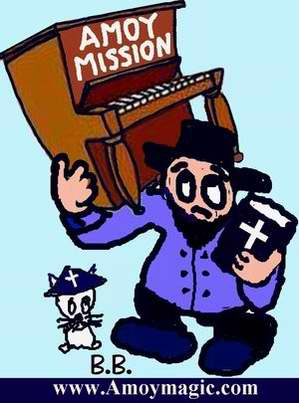 Please
share any relevant biographical material and photos for the website and
upcoming book. All text and photos will remain your property, and
photos will be imprinted to prevent unauthorized use.
Please
share any relevant biographical material and photos for the website and
upcoming book. All text and photos will remain your property, and
photos will be imprinted to prevent unauthorized use.
E-mail: amoybill@gmail.com
Snail Mail: Dr. William Brown
Box 1288 Xiamen University, Xiamen, Fujian PRC 361005
![]() Favorite
Fujian Sites
Favorite
Fujian Sites ![]() Fujian
Foto Album
Fujian
Foto Album ![]() Xiamen
Xiamen
![]() Gulangyu
Gulangyu
![]() Fujian
Guides
Fujian
Guides ![]() Quanzhou
Quanzhou
![]() Zhangzhou
Zhangzhou
![]() Longyan
Longyan
![]() Wuyi
Mtn
Wuyi
Mtn ![]() Ningde
Ningde
![]() Putian
Putian
![]() Sanming
Sanming
![]() Zhouning
Zhouning
![]() Taimu
Mtn.
Taimu
Mtn. ![]() Roundhouses
Roundhouses
![]() Bridges
Bridges
![]() Jiangxi
Jiangxi
![]() Guilin
Guilin
![]() Order
Books
Order
Books![]() Readers'
Letters New: Amoy
Vampires! Google
Search
Readers'
Letters New: Amoy
Vampires! Google
Search
Last Updated: October 2007
AMOY
MISSION LINKS
![]()
![]() A.M.
Main Menu
A.M.
Main Menu
![]() RCA
Miss'ry List
RCA
Miss'ry List
![]() AmoyMission-1877
AmoyMission-1877
![]() AmoyMission-1893
AmoyMission-1893
![]() Abeel,
David
Abeel,
David
![]() Beltman
Beltman
![]() Boot
Family
Boot
Family
![]() Broekema,
Ruth
Broekema,
Ruth
![]() Bruce,
Elizabeth
Bruce,
Elizabeth
![]() Burns,
Wm.
Burns,
Wm.
![]() Caldwells
Caldwells
![]() DePree
DePree
![]() Develder,
Wally
Develder,
Wally
![]() Wally's
Memoirs!
Wally's
Memoirs!
![]() Douglas,
Carstairs
Douglas,
Carstairs
![]() Doty,
Elihu
Doty,
Elihu
![]() Duryea,
Wm. Rankin
Duryea,
Wm. Rankin
![]() Esther,Joe
& Marion
Esther,Joe
& Marion
![]() Green,
Katherine
Green,
Katherine
![]() Gutzlaff,
Karl
Gutzlaff,
Karl
![]() Hills,Jack
& Joann
Hills,Jack
& Joann
. ![]() Hill's
Photos.80+
Hill's
Photos.80+
..![]() Keith
H.
Keith
H.![]() Homeschool
Homeschool
![]() Hofstras
Hofstras
![]() Holkeboer,
Tena
Holkeboer,
Tena
![]() Holleman,
M.D.
Holleman,
M.D.
![]() Hope
Hospital
Hope
Hospital
![]() Johnston
Bio
Johnston
Bio
![]() Joralmans
Joralmans
![]() Karsen,
W&R
Karsen,
W&R
![]() Koeppes,
Edwin&Eliz.
Koeppes,
Edwin&Eliz.
![]() Kip,
Leonard W.
Kip,
Leonard W.
![]() Meer
Wm. Vander
Meer
Wm. Vander
![]() Morrison,
Margaret
Morrison,
Margaret
![]() Muilenbergs
Muilenbergs
![]() Neinhuis,
Jean
Neinhuis,
Jean
![]() Oltman,
M.D.
Oltman,
M.D.
![]() Ostrum,
Alvin
Ostrum,
Alvin
![]() Otte,M.D.
Otte,M.D.![]() Last
Days
Last
Days
![]() Platz,
Jessie
Platz,
Jessie
![]() Pohlman,
W. J.
Pohlman,
W. J.
![]() Poppen,
H.& D.
Poppen,
H.& D.
![]() Rapalje,
Daniel
Rapalje,
Daniel
![]() Renskers
Renskers
![]() Talmage,
J.V.N.
Talmage,
J.V.N.
![]() Talman,
Dr.
Talman,
Dr.
![]() Veenschotens
Veenschotens
. ![]() Henry
V.
Henry
V.![]() Stella
V.
Stella
V.
. ![]() Girard
V.
Girard
V.
![]() Veldman,
J.
Veldman,
J.
![]() Voskuil,
H & M
Voskuil,
H & M
![]() Walvoord
Walvoord
![]() Warnshuis,
A.L.
Warnshuis,
A.L.
![]() Zwemer,
Nellie
Zwemer,
Nellie
![]() Fuh-chau
Cemetery
Fuh-chau
Cemetery
![]() City
of Springs
City
of Springs
(Quanzhou, 1902!!)
![]() XM
Churches
XM
Churches ![]()
![]() Church
History
Church
History ![]()
![]() Opium
Wars
Opium
Wars
![]() A.M.
Bibliography
A.M.
Bibliography
![]() YMCA
Volunteer!
YMCA
Volunteer!
![]() XICF
Fellowship
XICF
Fellowship![]()
![]() Temples
Temples![]()
![]() Mosques
Mosques
![]() Christ
in Chinese
Christ
in Chinese
Artists'
Eyes
DAILY LINKS
![]() FAQs
Questions?
FAQs
Questions?
![]() Real
Estate
Real
Estate
![]() Shopping
Shopping
![]() Maps
Maps
![]() Bookstores
Bookstores
![]() Trains
Trains
![]() Busses
Busses
![]() Car
Rental
Car
Rental
![]() Hotels
Hotels
![]() News
(CT)
News
(CT)
![]() Medical
& Dental
Medical
& Dental
![]() Expat
Groups
Expat
Groups
![]() Maids
Maids
![]() Phone
#s
Phone
#s
EDUCATION
![]() Xiamen
University
Xiamen
University
![]() XIS(Int'l
School)
XIS(Int'l
School)
![]() Study
Mandarin
Study
Mandarin
![]() CSP(China
Studies)
CSP(China
Studies)
![]() Library
Library
![]() Museums
Museums
![]() History
History
DINING ![]() Tea
Houses
Tea
Houses
![]() Restaurants
Restaurants
![]() Asian
Asian
![]() Veggie
Veggie
![]() Junk
Food
Junk
Food
![]() Chinese
Chinese
![]() Italian
Italian
![]() International
International![]()
![]() Visas
4 aliens
Visas
4 aliens
RECREATION
![]() Massage!
Massage!
![]() Beaches
Beaches
![]() Fly
Kites
Fly
Kites
![]() Sports
Sports
![]() Boardwalk
Boardwalk
![]() Parks
Parks
![]() Pets
Pets
![]() Birdwatching
Birdwatching
![]() Kung
Fu
Kung
Fu ![]() Hiking
Hiking
![]() Music
Events
Music
Events
![]() Cinema
Cinema
![]() Festival&Culture
Festival&Culture
![]() Humor&
Humor&![]() Fun
Fotos
Fun
Fotos![]()
BUSINESS
![]() Doing
Business
Doing
Business
![]() Jobs!(teach/work)
Jobs!(teach/work)
![]() Hire
Workers
Hire
Workers
![]() Foreign
Companies
Foreign
Companies
![]() CIFIT
(Trade Fair)
CIFIT
(Trade Fair)
![]() MTS(Translation)
MTS(Translation)
![]()
Back to Top
